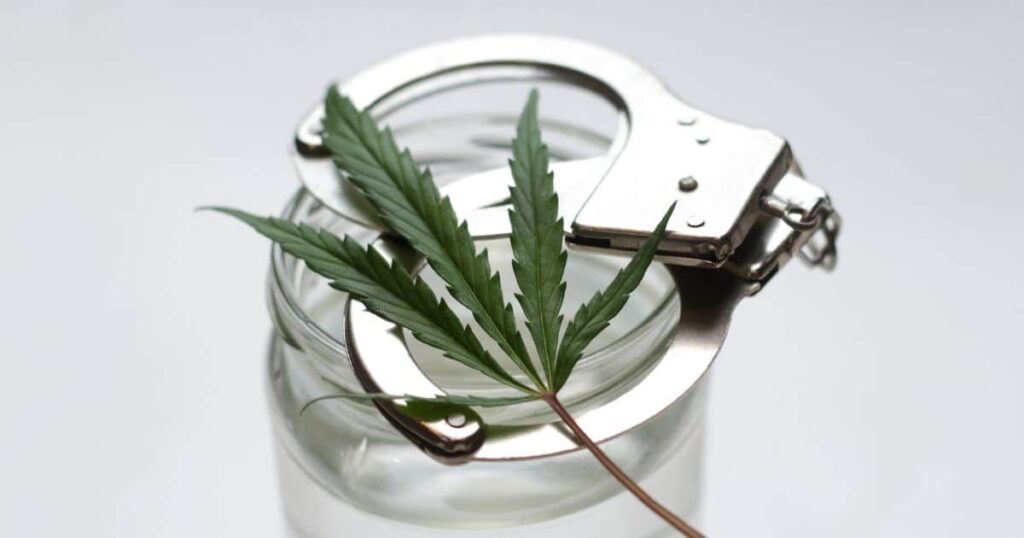Arizona law enforcement officials are preparing to launch “green labs” — specialized training programs where police officers observe volunteers consuming cannabis products to better understand cannabis impairment.
The program, spearheaded the Governor’s Office of Highway Safety, aims to train officers to distinguish between cannabis users who are genuinely impaired and those who are simply under the influence but still capable of safe driving.
With Arizona’s legal cannabis landscape evolving rapidly since recreational marijuana became legal in 2020, law enforcement faces the challenge of enforcing DUI laws without unfairly penalizing legal cannabis users.
The Current Challenge: Cannabis Isn’t Alcohol
Traditional drunk driving enforcement relies heavily on standardized methods developed specifically for alcohol impairment. Blood alcohol content (BAC) provides a clear, measurable standard that correlates with impairment levels.
Officers can use breathalyzers for immediate testing, and field sobriety tests were designed with alcohol’s predictable effects in mind.
Cannabis presents an entirely different set of challenges. The plant affects each person uniquely based on factors including tolerance, body weight, consumption method, and individual brain chemistry. What might significantly impair one person could leave another perfectly capable of driving safely.
“It’s so different and so unique that the scientific community has not agreed upon a certain level of THC to impair somebody,” said Sgt. George Chwe,coordinator for the Governor’s Office of Highway safety explained in a recent article by AzCentral. “I don’t see it in the foreseeable future.”
This lack of standardization has created a problematic enforcement environment. Some states have established five nanograms per milliliter of blood as the legal limit for active THC metabolites. However, after years of implementation, police in these states report that this threshold doesn’t reliably predict impairment.
Why Current Testing Methods For Cannabis Impairment Fall Short
The fundamental issue lies in how cannabis metabolizes compared to alcohol. While alcohol affects the body in relatively predictable ways, cannabis metabolites can remain in the bloodstream for days or weeks after use — long after any impairing effects have worn off.
Even active metabolites, which retain psychoactive properties, don’t necessarily indicate current impairment.
Field sobriety tests present another significant challenge. These assessments were specifically designed to detect alcohol impairment, which affects balance, coordination, and cognitive function in particular ways. Cannabis impairment manifests differently, making traditional field tests less reliable indicators of marijuana-related impairment.
A 2021 U.S. Department of Justice study underscored these reliability concerns. When police officers believed field sobriety tests indicated marijuana impairment, they were wrong 50% of the time — half the subjects had actually taken placebos rather than cannabis.
How Green Labs Could Improve Cannabis DUI Enforcement
These “Green labs” offer a potential “solution” to these enforcement challenges by providing officers with real-world exposure to various levels of cannabis impairment. During these training sessions, volunteers consume different cannabis products — flower, edibles, vapes, and THC-infused beverages — while officers observe their behavior and test responses.
The training protocol includes several key components:
Blood Testing: Medical professionals measure participants’ active THC metabolite levels throughout the session, creating data points that correlate specific blood concentrations with observable impairment levels.
Behavioral Observation: Officers watch how different individuals respond to various cannabis products and dosages, learning to recognize subtle signs of impairment that might not be apparent through traditional field tests.
Standardized Testing: Participants perform field sobriety tests at different stages of impairment, helping officers understand how cannabis affects test performance compared to alcohol.
Individual Variation Documentation: By observing people of different ages, body types, and tolerance levels, officers could possibly gain insight into how cannabis affects individuals differently.
A Step Forward, Not a Perfect Solution
While green labs represent progress in cannabis impairment detection, they’re not a universal solution to the current enforcement challenges. Cannabis affects everyone differently, and until scientists develop reliable, real-time impairment testing methods, determining driving fitness will remain subjective.
However, this training approach offers several advantages over current practices:
Reduced False Positives: Better-trained officers may be less likely to arrest unimpaired drivers who simply test positive for cannabis metabolites.
Evidence-Based Enforcement: Green labs provide officers with scientific data about how cannabis impairment actually manifests, rather than relying on assumptions or alcohol-based training.
Fairer Legal Outcomes: More accurate impairment detection could reduce wrongful convictions while still catching genuinely impaired drivers.
Public Trust: Demonstrating commitment to fair, evidence-based enforcement may improve public confidence in cannabis-related DUI enforcement.
Addressing Legal and Scientific Concerns
The introduction of green labs has sparked debate among legal experts and defense attorneys. Some worry that police might use this training to justify continued reliance on field sobriety tests that may not accurately detect cannabis impairment.
There is skepticism about the motivations behind the program, with concerns that DUI enforcement remains a significant business. The focus on arresting, prosecuting, and convicting individuals raises questions, as does the reliability of labs funded by entities with a vested interest in ensuring arrests.
These concerns highlight the importance of implementing green labs with proper scientific oversight. Jesse Torrez, executive director of the Governor’s Office of Highway Safety, indicated that Arizona’s program aims to partner with state universities to ensure rigorous scientific methodology.
Arizona’s move toward green lab training reflects the larger changes in cannabis law enforcement nationwide. Since the state legalized recreational marijuana in 2020, joining a growing number of states with legal adult-use programs, law enforcement has grappled with updating decades-old enforcement practices.
The Arizona Supreme Court has already recognized some of these challenges. In 2014, the court ruled that marijuana metabolites alone couldn’t support DUI convictions, acknowledging that detecting past use isn’t equivalent to proving current impairment.
Looking Ahead, Technology and Training
While green labs represent an important step forward, the ultimate goal remains developing reliable, real-time impairment testing technology. Research continues into cannabis breathalyzers, with some promising developments emerging.
A July 2023 study by the National Institute of Standards and Technology demonstrated that breath tests could detect THC hours after cannabis consumption. While researchers acknowledged limitations in their study, the results suggest that practical THC breathalyzers may eventually become available.
Until such technology arrives, training programs like green labs offer the most practical approach to improving cannabis impairment detection.
By combining real-world observation with scientific measurement, these programs could help bridge the gap between current enforcement capabilities and the complex reality of cannabis impairment.
Balancing Public Safety and Individual Rights
Arizona’s approach acknowledges that cannabis legalization requires law enforcement to evolve beyond simply applying alcohol-based enforcement models to a fundamentally different substance.
Sgt. Chwe talked about this balance in his explanation of the program’s goals via AzCentral: “We don’t want the public to think because they smoked marijuana that they’re going to get a DUI. That is not the goal of law enforcement, and we don’t want the public’s perception to be that, especially after the voters decided to make it legal.”
This perspective represents a significant shift from traditional drug enforcement approaches. Rather than assuming all cannabis use leads to impairment, the green lab program acknowledges that legal cannabis users should only face DUI charges when genuinely impaired.
Moving Forward Thoughtfully
As Arizona prepares to launch its green lab program, potentially by late 2026 or early 2027, the state has an opportunity to set a national example for evidence-based cannabis impairment enforcement.
Success will depend on maintaining scientific accuracy, ensuring proper oversight, and remaining focused on the program’s stated goal: distinguishing between impaired and unimpaired drivers.
These “Green labs” most certaintly won’t solve every challenge associated with cannabis impairment detection. However, they represent a meaningful step toward more scientific, fair, and effective enforcement of impaired driving laws.
As cannabis legalization continues expanding across the United States, other states will likely watch Arizona’s experience with great interest.
The success of this approach could influence how law enforcement nationwide adapts to cannabis legalization — moving from prohibition-era enforcement models toward evidence-based practices that protect both public safety and individual rights in our evolving legal cannabis landscape.






















